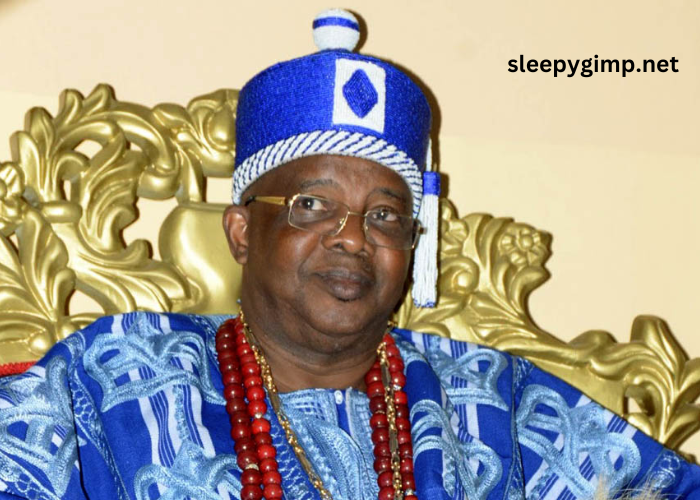Every culture across the globe has its own unique traditions and festivals. These celebrations serve as a way to preserve cultural heritage and pass down values from one generation to the next. One such festival that stands out for its distinctiveness is Eluku.
This annual event is celebrated by the male descendants of a particular town, with its roots firmly planted in a patriarchal tradition. In this blog post, we will explore the fascinating aspects of Eluku, its significance, and the role it plays in preserving the town’s cultural identity.
The most intriguing aspect of Eluku is its exclusivity—only the male descendants who are paternal natives of the town are allowed to participate in this festival. It is an event that highlights the importance of lineage and ancestral heritage, celebrating the male lineage of a particular community.
The festival takes place once a year and has been a long-standing tradition passed down through generations. In a world where many traditions have been evolving or fading away, Eluku stands as a testament to the rich history and customs that continue to thrive in certain parts of the world.
Key Points:
- Eluku is a patriarchal festival celebrated by male descendants.
- The festival is exclusive to paternal natives of the town.
- Eluku preserves and promotes cultural heritage and ancestry.
What Is the Significance of Eluku?
The significance of Eluku goes beyond just a cultural celebration. It serves as a living link to the town’s past, keeping alive the customs, rituals, and practices of the community’s ancestors. The festival is important because it honors the male lineage that has contributed to the town’s growth and development.
Cultural and Historical Importance
Eluku represents the deep connection between the present and the past. The festival’s roots are based in patriarchy, and it is this male-centered tradition that gives it its unique character. The event is an opportunity for men who are direct descendants of the paternal side of the family to come together and celebrate their shared history. It is a way to maintain the town’s sense of unity, identity, and cultural continuity.
Additionally, the festival allows the younger generation to be introduced to the significance of their ancestral lineage. By participating in the festival, they gain a deeper understanding of where they come from and the role their family has played in shaping the town’s history.
Who Can Participate in Eluku?
Eluku is unique in that only a specific group of people can participate. The festival is limited to male descendants who are paternal natives of the town. This exclusivity makes the festival even more significant to the community, as it underscores the patriarchal values that define the event.
Participation Criteria
To be eligible for Eluku, individuals must meet the following criteria:
- Male Descendants: Only males are allowed to take part in the celebrations.
- Paternal Lineage: The participants must be descendants of the paternal side of the family.
- Town’s Native: They must be native to the town and have ancestral ties to it.
This patriarchal custom has been passed down for generations, and participation in Eluku is seen as a great honor. For the men who are allowed to join, it is a way to strengthen their bond with their ancestors and reaffirm their connection to the town’s heritage.
What Are the Key Rituals and Activities in Eluku?
Like many cultural festivals, Eluku is not just a celebration but also a series of events and rituals that hold great significance. The festival is marked by various activities that symbolize the unity and strength of the paternal lineage. These activities are often deeply symbolic and are meant to honor both ancestors and the living members of the community.
Key Rituals and Celebrations
Some of the key rituals and activities that take place during Eluku include:
- Ancestral Prayers: The festival begins with ancestral prayers and offerings to honor the male ancestors who laid the foundation of the town. These prayers serve as a way of showing respect and gratitude.
- Community Feasts: A large part of Eluku is dedicated to feasting. Family members and participants come together to share meals that include traditional dishes passed down through generations.
- Cultural Performances: Music and dance are integral parts of the festival. These performances often depict historical events or tell stories about the town’s origins.
- Family Gatherings: The festival provides an opportunity for family members to reconnect with each other, especially those who live in different areas. It is a time to strengthen family bonds and share experiences.
Through these rituals, Eluku maintains its relevance, creating a sense of belonging and pride among the male descendants of the town.
How Does Eluku Promote Cultural Heritage?
One of the main objectives of Eluku is to promote and preserve the cultural heritage of the community. By ensuring that the festival is celebrated annually, the town reinforces its deep-rooted traditions and ensures that younger generations continue to value and respect their ancestry.
The Importance of Cultural Preservation
In today’s fast-paced world, many traditions are at risk of being forgotten. However, Eluku serves as a way to preserve the culture and ensure that it is passed on to future generations. By participating in the festival, younger males learn about the importance of their heritage and are encouraged to take pride in their ancestry.
This focus on cultural preservation ensures that the town’s history is never lost. Through the celebration of Eluku, the community can continue to thrive, fostering a strong sense of identity and pride in the town’s history.
Conclusion
Eluku is more than just an annual traditional festival; it is a vital part of the community’s heritage. With its focus on paternal lineage and the celebration of male descendants, Eluku stands as a testament to the rich cultural traditions that have been passed down through generations. The festival not only provides an opportunity for people to come together and celebrate their shared history but also plays a crucial role in preserving the town’s cultural identity for future generations.
As society continues to evolve, Eluku serves as a reminder of the importance of tradition and the value of honoring one’s ancestry. Through its unique blend of rituals, activities, and cultural preservation, the festival ensures that the town’s legacy will live on for years to come.
FAQ’s
1. What is Eluku?
Eluku is an annual traditional festival celebrated by male descendants who are paternal natives of a particular town. It is a patriarchal festival that honors the male lineage of the community.
2. Can females participate in Eluku?
No, only male descendants of paternal lineage are allowed to participate in Eluku. This is part of the festival’s patriarchal nature.
3. What are the main rituals during Eluku?
The main rituals include ancestral prayers, community feasts, cultural performances, and family gatherings. These activities help celebrate and preserve the town’s history.
4. Why is Eluku important for the community?
Eluku helps preserve cultural heritage and strengthens the bond between the community members, especially among male descendants. It plays a key role in ensuring that traditions are passed down to future generations.
5. How does Eluku promote cultural heritage?
Eluku promotes cultural heritage by providing a platform for the community to celebrate its traditions and history. It ensures that future generations learn about their ancestry and continue to value the culture.





